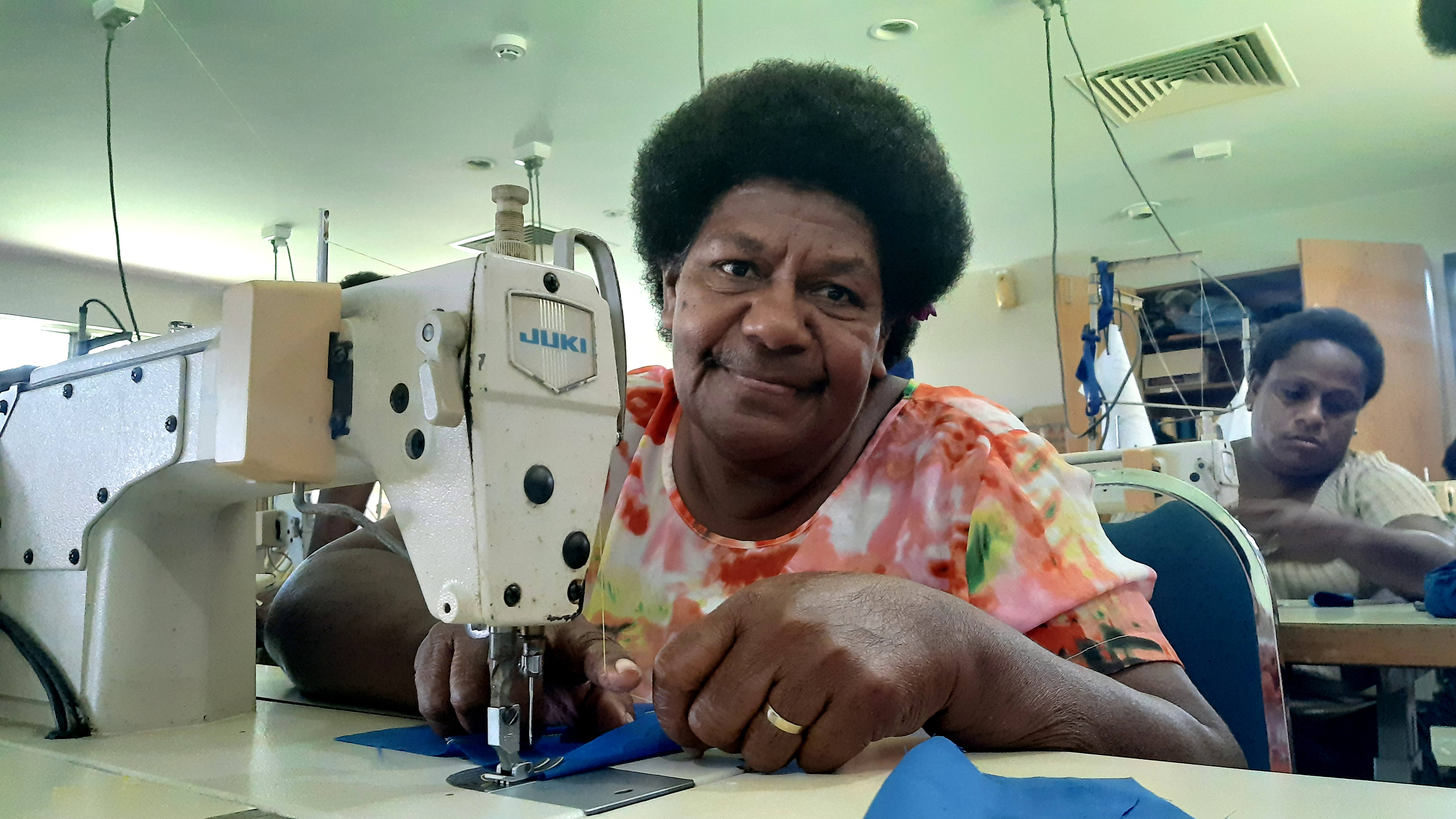
Mangrove Project Empowers Communities, Supports Alternative Livelihood
For almost 30 years Nunia
Tinaibilosiliva has been depending on the coastal and mangrove wetland resources
around her village as a source of income generation. Mrs Tinaibilosiliva and
other villagers earn their living from the sale of fuel wood, fish, mud crabs,
mud lobster and many local delicacies gathered from the mangrove forests.
Now the 60-year-old Waicoka villager in the district of Bau in Tailevu said she sold these delicacies at the Nausori Market so that her family – consisting of her husband and five children could make ends meet at the time.
“Back in the days my children
– three daughters and two sons were in high school and we had to pay school
fees. At the time education was not free like we have today,” Mrs
Tinaibilosiliva said.
“My children attended prominent boarding schools here in Tailevu and I told my husband that whatever the cost, we needed to give our children a good education. My children were my number one priority and we needed to ensure we met all their various school requirements and obligations.”
In the 1970’s, Mrs Tinaibilosiliva decided to give fishing a rest and find other means of earning an income while her husband continued to fish.
“I attended sewing classes
with other women at the Methodist Leadership Training Centre in Davuilevu and
the aim was to enable us to sew clothes like sulu jaba or shirts and
dresses as a source of income generation.”
“After the sewing classes I
was able to find a job as a shoe maker at Footwear International which used to
be located at Laucala Beach.”
A few months into her job at
the factory Mrs Tinaibilosiliva realized that her earnings was not sufficient
to cater for her family’s needs so she decided to go back to the village to
gather fish and other delicacies from the mangrove swamps as it raked in twice
or three times her salary.
“I earned $300 a week from selling fish and other delicacies compared to $80 a week at the shoe factory,” Mrs Tinaibilosiliva said.
“Today all my children – the
youngest at 27-years old, have good jobs and are supporting my husband and I
back in the village so we only go out to fish every once in a while. But we
only get enough for us to consume and not to sell.”
Mrs Tinaibilosiliva said she never heard about sustainable forest management before until the International Tropical Timber Organization (ITTO) visited their village last year.
“I
didn’t realize that frequently catching fish and other delicacies from the
mangrove swamps threatened the lives of other marine life and biodiversity that
rely on the mangrove swamps,” Mrs Tinaibilosiliva said.
Mrs Tinaibilosiliva was one of the 11 participants chosen for the Basic Sewing Skills Training held at Fiji National University (FNU) Nabua Campus two weeks ago.
The
two-weeks training which was funded by Government’s ITTO Project is aimed at
providing alternative livelihoods for women so that pressure on our mangrove
forests is eased.
“I
had learnt how to sew back in the 1970’s but I made no progress because at the
time financial pressures of having to pay school fees saw me going back to the
mangrove swamps to earn my living.”
“Now that I realize I was harming the environment, I intend to put my Basic Sewing Skills learnt here today to good use. I will also be imparting these skills to other village women so that together we have an alternative source of livelihood instead of exploiting our mangrove resources.”
For centuries, mangrove forests have sustained the traditional cultures of coastal populations as a source of fish and game, fuelwood, medicines, tannins and fodder for livestock. And they have supported the development of industries that use them as a source of raw materials for paper, chipboard, charcoal and construction.
Research indicated that Fiji has the third largest mangrove area in the Pacific with an estimated mangrove area of about 46,600 hectares, most of which are on the two main islands of Viti Levu and Vanua Levu.
The Rewa Delta has the largest strands of mangrove eco-system complex in Fiji however it is under constant pressure as well as degradation through firewood harvest as most these communities are still largely dependent on these vulnerable mangrove forests for a wide range of subsistence and commercial forestry and fisheries products.
Rehabilitation and restoration of these mangrove eco-systems along the Rewa Delta have important ecological, economic and social advantages many of which are taken for granted until mangroves systems are severely degraded and effects of coastal erosion and marine life depletion are encountered.
Six villages in the Rewa Delta namely Nasilai, Muana-ira, Narocake, Naivakacau, Waicoka and Natila have less alternative sources of livelihood to support them and their families as they have limited land for subsistence farming so they are heavily dependent on the mangrove eco-system.
The Fiji Government’s ITTO project addresses mangrove management and rehabilitation in the Rewa Delta and has made available provisions for alternative livelihoods such as the establishment of nurseries, shrimp ponds, piggeries, training and capacity building in sewing, raising seedlings and overall awareness on the importance of mangroves and the ecosystems they support.
ITTO promotes the conservation, restoration and sustainable management and use of mangrove forest resources in the tropics. It does this through both policy development and projects aimed at optimizing the contributions of mangrove restoration and sustainable management to the Sustainable Development Goals and the Paris Agreement on climate change.
Minister
for Forestry, Honourable Osea Naiqamu, whilst addressing Parliament this week
said Government is doing all it could to support alternative livelihoods for
the communities who are depended on mangroves.
He also said that Government is very focused on its endeavours to provide alternative livelihoods especially under the current COVID-19 environment. We are working towards a triple win for the economy, for the environment and for the stakeholders who are dependent on natural resources.